Polymers Petrochemicals Smart Textile 10-04-2019 - Arhive
- China – Polyethylene Terephthalate
- PET is steady ,while its chain is weak, with the exception of PX.
- Crude oil is always in good health.
- Polyamide 6 and its chain are steady.
PET Bottle grade export 1,080/1,130 $/ton – PET Bottle grade domestic market 8,650/8,750 yuan/ton – PET Filament grade SD domestic market 7,850/7,950 yuan/ton – PET Filament grade BR domestic market 7,950/8,050 yuan/ton
PTA Taiwan 840/850 $/ton – PTA domestic market 6,450/6,600 yuan/ton – MEG 595/610 $/ton – MEG domestic market 4,700/4,800 yuan/ton – PX Korea 1,030/1,040 $/ton
Polyester POY 150D/48F domestic market 9,250/9,350 yuan/ton – Polyester DTY 150D/48F domestic market 10,550/10,700 yuan/ton – Polyester Staple PSF domestic market 8,950/10,050 yuan/ton
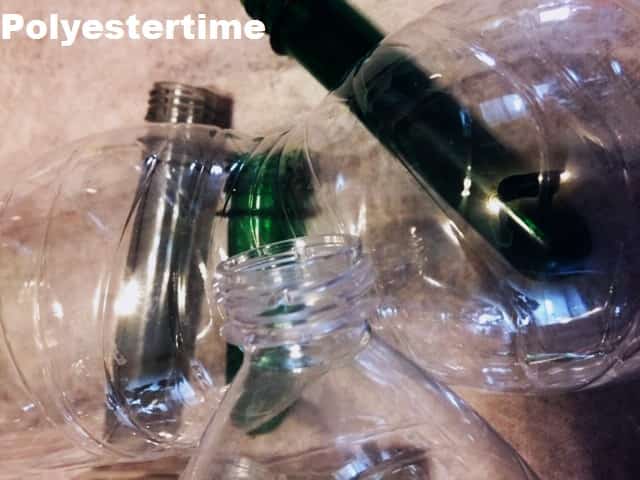
Crude Oil Prices Trend

The book examines the role that recycling can play in providing solutions to the world’s worsening resource crisis.
It explores the technical feasibility and progress made towards 100% recyclability of plastics and highlights the opportunities of using high-quality recycled plastics for manufacturers of plastic products and packaging.
The e-book points out that the consumers’ concerns about waste bring opportunities for brands to demonstrate corporate social responsibility and build customer loyalty, to the benefit of their business results.

Uzbekistan plans to invest $12.1bn in developing its aging petrochemical industry over a 10-year period.
Its strategy includes selling off government stakes in a number of enterprises, according to according to a decree from reform-minded Uzbek President Shavkat Mirziyoyev published last week.
The programme, spanning 2019-2030, will include 31 projects, including the expansion of existing facilities and construction of new ones for the production of phosphate, nitrogen, potash and complex mineral fertilisers.

Raymond Group, a leading fashion and textile manufacturer and retailer, has unveiled the eco-friendly Ecovera – a range of fabrics manufactured by using R|Elan, the latest technology from Reliance Industries Ltd (RIL). Ecovera will redeem almost 1 million PET bottles from landfills. It’s a testimony to both RIL and Raymond’s commitment to saving the earth.
The Ecovera range will soon hit 1500 stores across 700 cities. It is made from R|Elan GreenGold, the greenest fibre in the world. R|Elan GreenGold is made by recycling post- consumer waste PET bottles, using bio-fuels and energy-efficient processes.

Praj Industries announced today that it has signed a Construction License Agreement (CLA) with Gevo, Inc, USA dated 4th April 2019, to commercialize technology for the production of isobutanol using sugary-based feedstocks, such as juice, syrup and molasses.
Pursuant to the CLA, Praj will provide Engineering Procurement and Construction (EPC) services to 3rd parties using a process design package developed by Praj.
This package uses Gevo’s proprietary isobutanol biocatalyst on sugary-based feedstock. Isobutanol derived from said proprietary process is high energy renewable intermediate product that finds application in Aviation and Racing cars.

Asia naphtha’s market structure shrank in backwardation as regional demand is easing following disruptions at a downstream aromatics facility in Taiwan following an explosion, resulting in a lack of bullish expectations for the coming days.
FPCC likely to reduce naphtha purchase
Naphtha spot prices up slightly on higher crude
YNCC picks up H2 May supplies
Naphtha’s forward intermonth time-spread between the second half of May and the second half of June stood at $3.75/tonne in backwardation at early hours session on Tuesday, with prompt-month prices firmer than forward months.
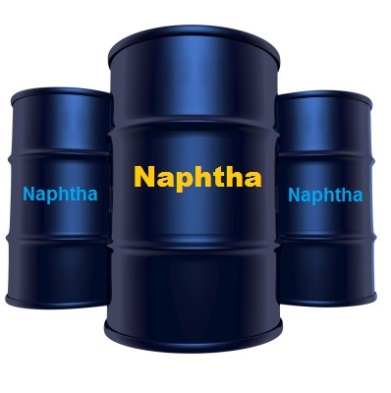
Coca-Cola Amatil is taking its $10 million venture capital arm into Indonesia in the hope of finding solutions to problems such as on-demand delivery and sustainable packaging.
CCA launched Amatil X and an investment program, AX Ventures, a year ago with innovation partner BlueChilli to invest in start-ups and concepts capable of helping the company grow top-line revenues.
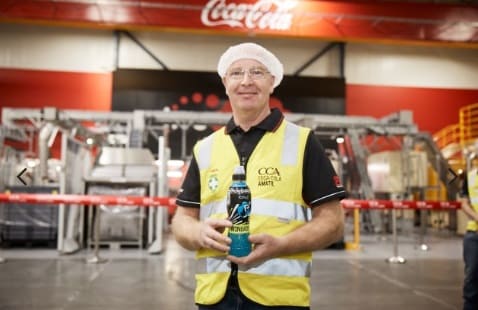
BP has formed a partnership with Virent and Johnson Matthey to commercialise a process that produces paraxylene from biological sources, rather than traditional fossil fuels.
Virent’s BioForming technology, which is being developed with Johnson Matthey, uses aqueous-phase reforming technology and modified catalytic processing to convert aqueous carbohydrate solutions, including sugar sources from corn mills, into mixtures of ‘drop-in’ hydrocarbons. These can be processed in traditional plants to produce fuels and chemicals.
BP is interested in commercialising the process for producing bio-paraxylene, which would be used as a feedstock for the manufacture of purified terephthalic acid (PTA). This in turn is used to produce polyester fibres and polyethylene terephthalate (PET).
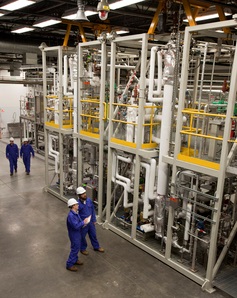
Innovative technologies can be the answer to a greener footprint within the hydrocarbon dependent textile industry, concluded industry experts at a panel discussion titled ‘How Sustainable is Sustainability?’ held at a hotel in Dubai on Tuesday.
Attended by leaders from the public and private sector, the panel was organised by Blossom Trading, one of the largest importers of Dishdasha / Kandoora materials from Japan catering to the GCC, Iraq & Yemen markets, in association with Itochu, one of Japan’s largest trading companies.

A steady flow of buy orders and transactions rolled through the spot resin markets the first week of April, reports the PlasticsExchange (Chicago).
Good demand for most grades of polyethylene (PE) and polypropylene (PP), in prime and off grade, came from domestic and international buyers.
Fresh railcar offerings were lighter, and spot prices for PE and PP resins rose $0.005 to $0.01/lb. Market sentiment has turned slightly bullish, at least for the short term, notes the PlasticsExchange in its weekly Market Update, musing that it may be the start of a longer trend.
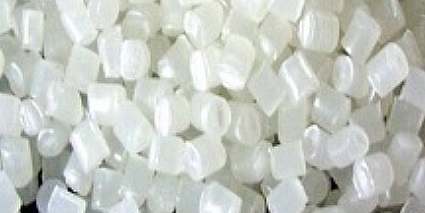
At least 60 organizations are working to scale up depolymerization, pyrolysis and other emerging plastic processing methods.
The North American market for the resulting products could top $100 billion annually.
Those statistics come from “Accelerating Circular Supply Chains for Plastics,” a market-landscape report released today by Closed Loop Partners.
It is the first comprehensive analysis of the range of approaches to plastics processing that are sometimes referred to as chemical recycling.
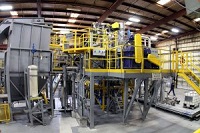
A switch to Mobil DTE 10 Excel hydraulic fluid helped MPact Polymers reduce the energy used by processing equipment at its Pinetown site by 7%.
The move also helped optimise equipment performance, which reduced unscheduled maintenance, while the hydraulic fluid’s long life cut waste oil disposal costs.
The South African plastics packaging manufacturer was looking for ways to improve the efficiency of its plastics processing equipment.
ExxonMobil’s Field Engineering Services (FES) team recommended switching the company’s 22 injection moulding machines and 13 blow moulding lines to Mobil DTE 10 Excel 46 hydraulic fluid.
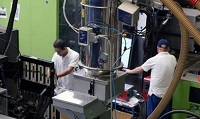
Saudi Arabia threatens to sell its oil using other currencies instead of the US Dollar if Washington passes a bill aimed at OPEC members. If the Saudis abide by their threats, they will be able to bring down the US economy, say several experts.
The US Congress is considering the “Oil Production and Export Cartels Bill” (NOPEC), which once passed will pave the way for the US to sue OPEC member states for their attempts to reduce oil extraction to raise oil prices, reports Reuters.

Styrenics giant INEOS Styrolution has completed the first successful test runs producing virgin polystyrene from previously depolymerized material. The experiments took place at the company’s Antwerp site in Belgium.
The lab-scale quantity of general-purpose polystyrene produced from 100 per cent recycled styrene monomer signals a game changer in polystyrene production, according to the company. The tests – conducted in cooperation with commercial partners and universities – resulted in the production of virgin material with the same product properties as polystyrene produced from new styrene monomers.

